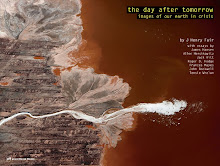Being from a big city, and traveling to others, creates a set of behaviors and cautions that usually come from a few painful experiences. It also creates a self-confidence, which enables the smooth transition from one chaotic city to the next. And we adjust our behavior in relation to the perceived inherent danger level of the locale. A deep phone conversation at the end of a busy day in Amsterdam, a city in which I feel quite at home, paused me on a bench in a lovely park, where I placed my backpack next to me. In the space of seconds, I sensed it simply disappear. Panicked, phone in the pocket, I turned to the three men sitting at the next bench and asked if they had seen someone take my bag.
In spite of the lack of a visible perpetrator, I raced breathlessly down the street they indicated, and asked a waiter on the sidewalk who had not seen someone running away with a blue/orange backpack. I raced back to the scene of the crime, queried the witnesses again, and, becoming suspicious at their vague responses and their rather suspicious demeanor, offered them 500Eur to get my backpack returned; to which one of the men responded that if I gave him the 500, he would call the perp.
All the while, my brain was reviewing the incident, and marveling at the speed and quiet with which it transpired, and settling on the fact that there were no running feet. Suddenly it was clear, my bag was still there and a cursory search of the environs turned it up under a pile of bicycles. My antagonist promptly changed his tune, assuring me that he had been watching my back, and that I should reward him. My declaration that he was lucky I was not looking for the police met with a meager attempt to look and sound menacing. Needless to say, my relief at finding laptop, passport, money, and whatever else therein which loss would be catastrophic, and desire to continue my evening trumped my drive for a justice I knew could never be obtained, and waving him away like so many pests in the city, I continued on my way.
Amsterdam is a place where the social contract somehow, miraculously, seems to work. Somehow many different with their distinct histories and motivations go about their business in relative harmony.
These men that tried to take my bag were black. As someone coming from the USA, where the policemen look like robocops, and to be a man of color means a certainty of harassment in life, this smooth functioning of society seems unusual. When two clean-cut Dutch policemen rode by me some time later, I stopped them, related the incident, and directed them toward the perpetrators. In the USA, I probably would not have, from a combination of my own bad experiences with police, concern for police mistreatment of minorities, and a sense of futility about the efficacy of action.
Conversely, in a place where the “social contract” is working, one feels obliged to participate, even though the possibility of “justice” is equally slim. But at least they know someone is watching.






